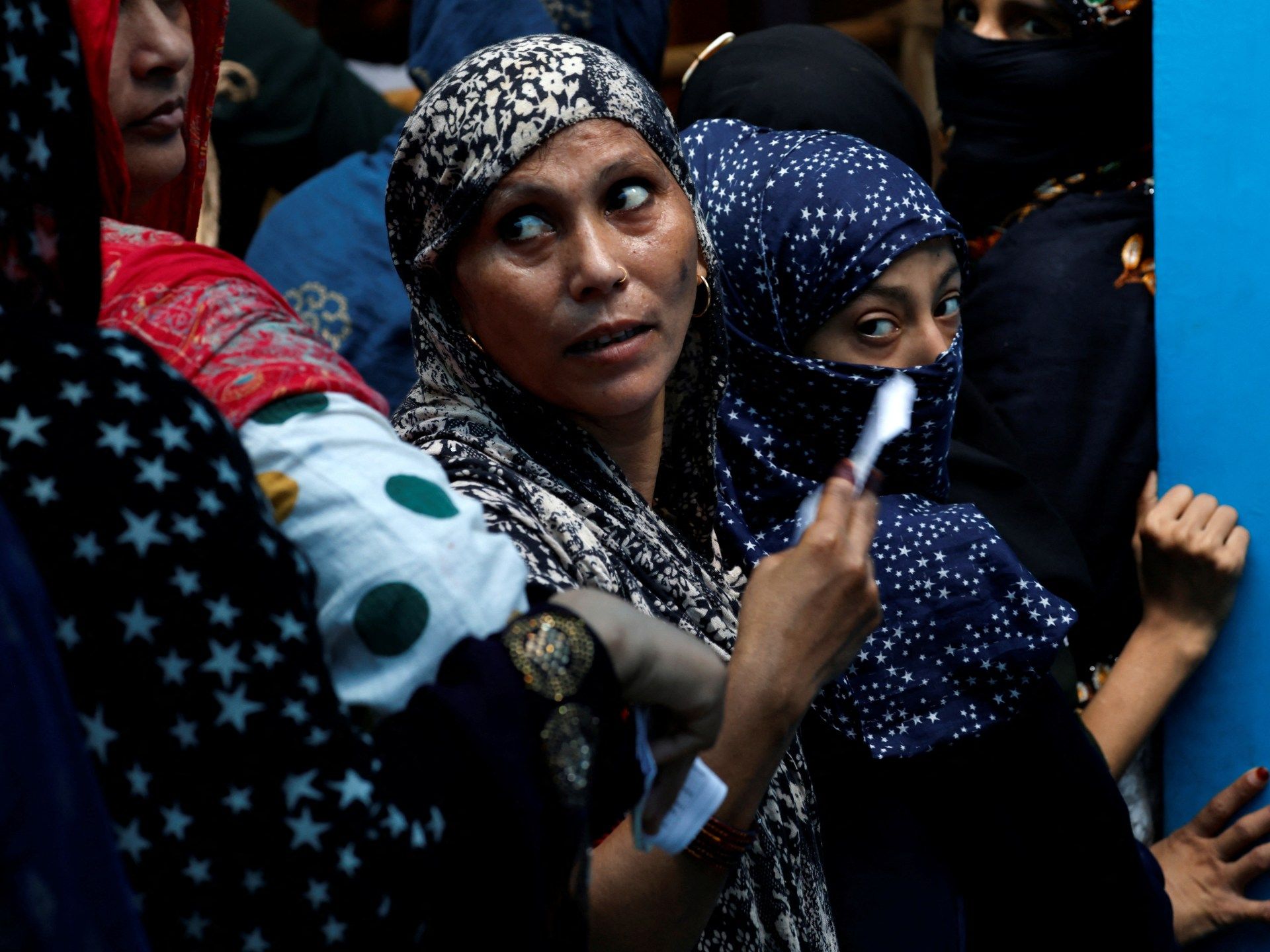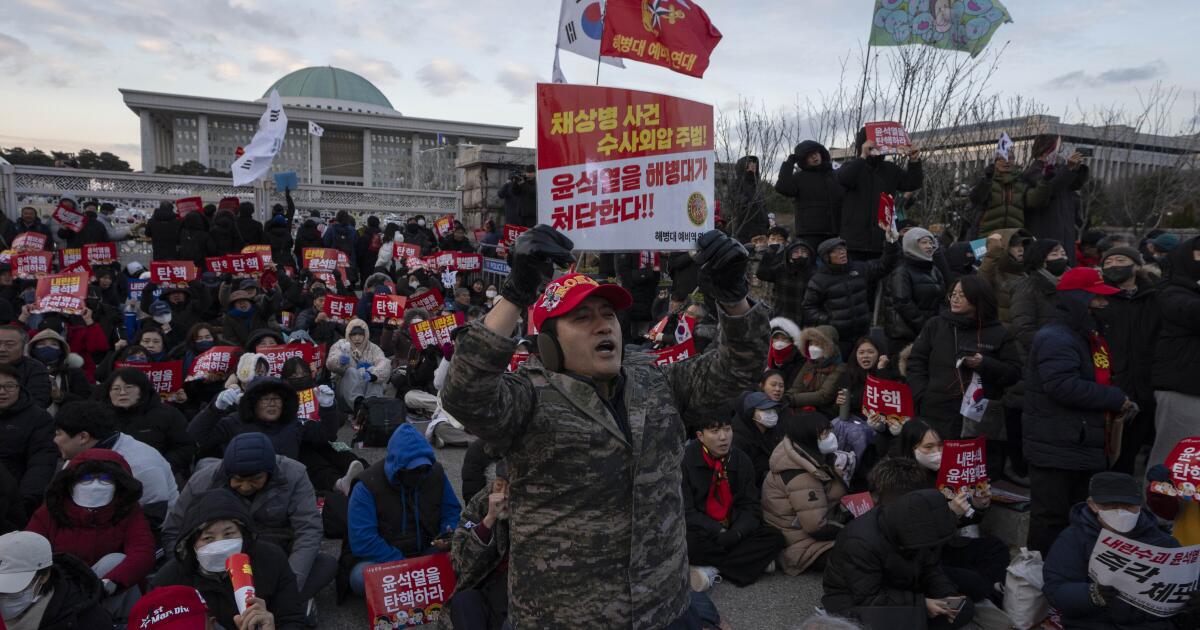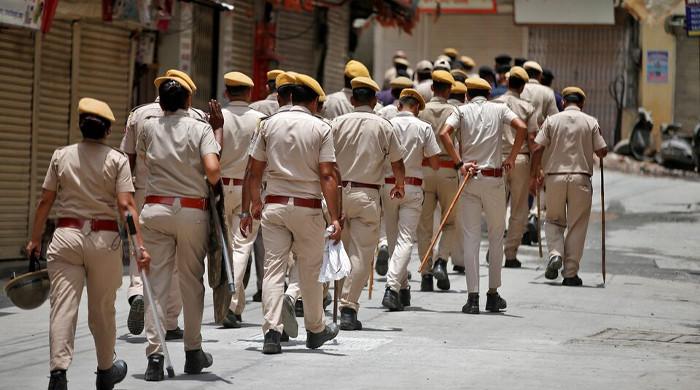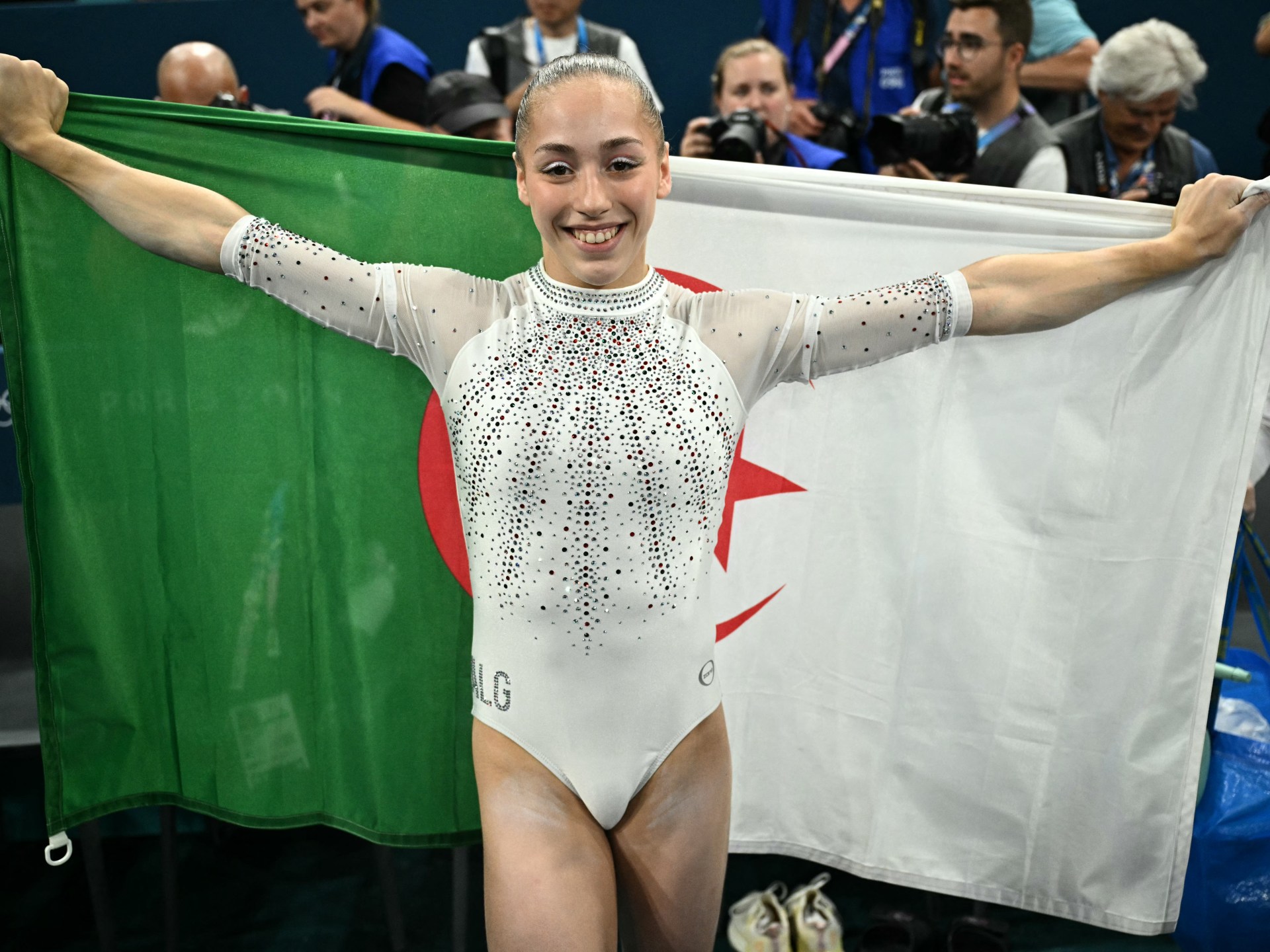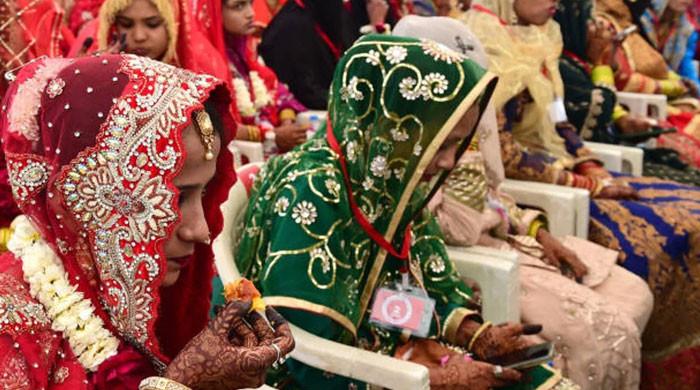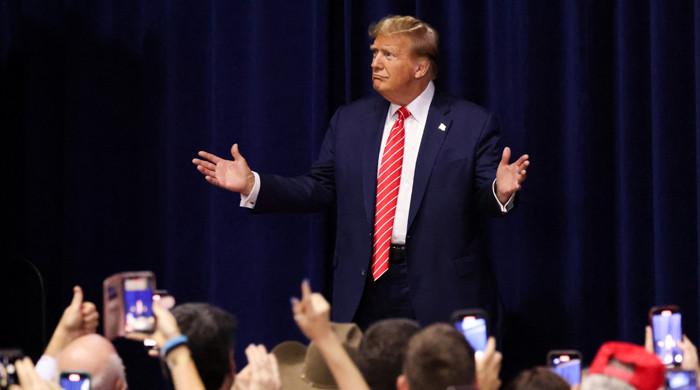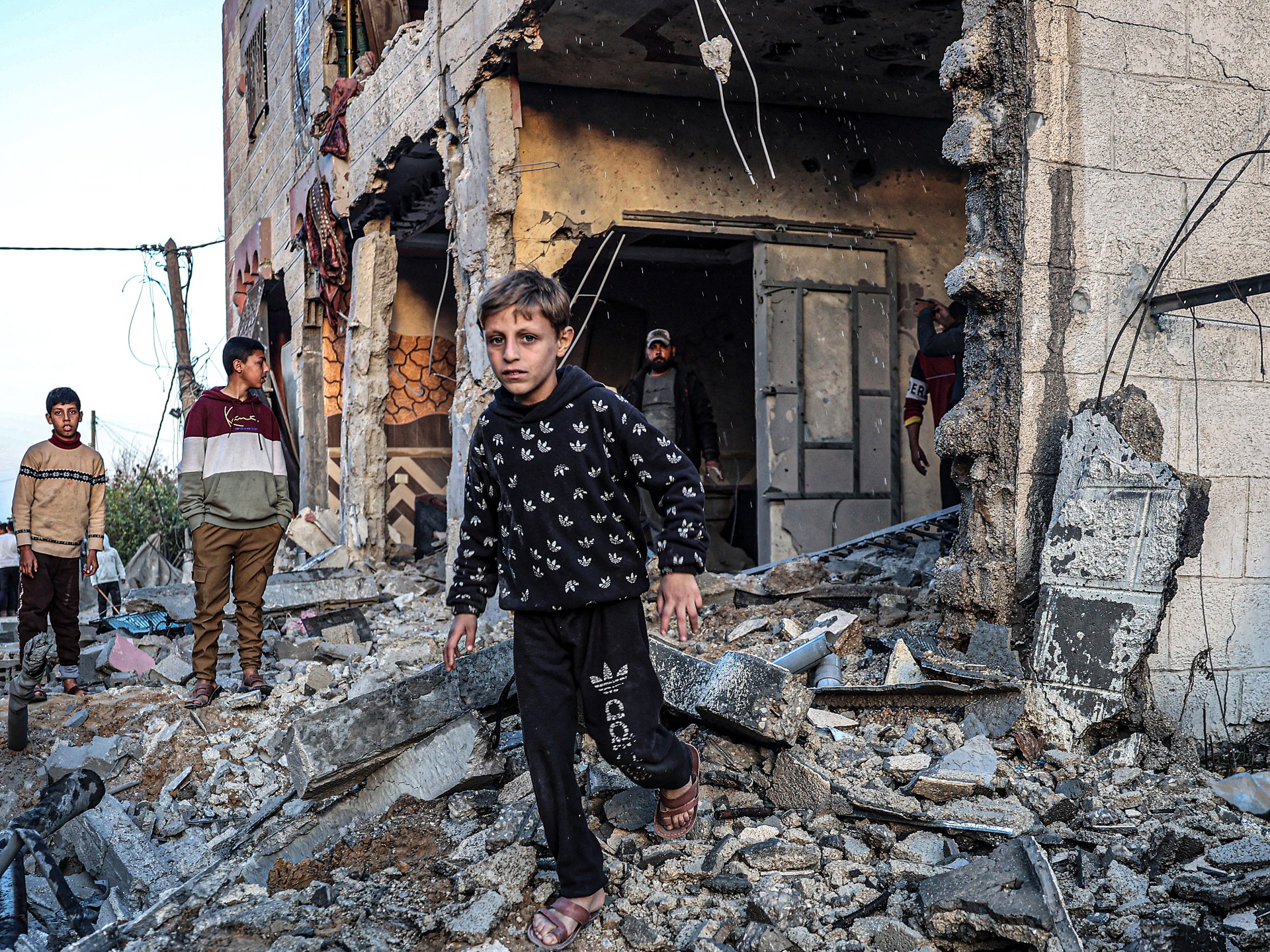Millions of Indians have voted in the penultimate round of a grueling national election, in which a combined opposition is trying to prevent Prime Minister Narendra Modi from winning a rare third consecutive term.
Many people lined up at polling stations before the start of voting at 7am (01:30 GMT) on Saturday to avoid the scorching sun later in the peak of summer.
The temperature soared to 43 degrees Celsius (109.4 degrees Fahrenheit) in the afternoon in the capital, New Delhi. India's meteorological office this week issued a heat wave “red alert” for the city and surrounding states where tens of millions of people voted.
Lakshmi Bansal, a housewife, said that when it was hot, people usually went out shopping and even attended festivals in the heat.
“This [election] It is also like a festival, so I have no problem voting when it is hot,” Bansal said.
Nearly 970 million voters – more than 10 percent of the world's population – had the right to elect 543 members to the lower house of parliament for five years.

Saturday's voting in 58 constituencies, including seven in New Delhi, completed voting for 89.5 percent of the 543 seats in the lower house of parliament.
Voting for the remaining 57 seats on June 1 will conclude the six-week election. Votes will be counted on June 4.
President Droupadi Murmu and External Affairs Minister S. Jaishankar were among the early voters. Opposition Congress party leaders Sonia Gandhi and her son Rahul Gandhi also voted in New Delhi.

Mehbooba Mufti, former chief minister of Indian-administered Kashmir, staged a protest with her supporters on Saturday, claiming that police detained dozens of her party workers to prevent them from voting. Mufti, chief of the People's Democratic Party contesting the parliamentary elections in Anantnag-Rajouri district, said she complained to election officials.
In the state of West Bengal, workers belonging to the All India Trinamool Congress party blocked the car of Agnimitra Paul, one of Modi's Bharatiya Janata Party (BJP) candidates, while she was voting in the Medinipur constituency. The two parties are rivals in the state and their workers often clash in the streets.
“The opposition is doing better than expected”
This election is considered one of the most important in Indian history and will test Modi's political dominance. If Modi wins, he will be only the second Indian leader to retain power for a third term, after Jawaharlal Nehru, the country's first prime minister.
Modi ran his campaign like a presidential race, a referendum on his 10 years of rule. He claimed to help the poorest with charity, free medical care, providing toilets in their homes and helping women obtain free or cheap cooking gas cylinders.
But Modi changed course after poor voter turnout in the first round of elections and began stirring up Hindu nationalism, accusing the Congress Party of pandering to the Muslim minority in search of votes.
Hindus make up 80 percent, and Muslims almost 14 percent, of India's more than 1.4 billion people.
“When the polls began it seemed like a one-horse race, with Modi leading from the front. But now we are seeing some kind of change,” said political analyst Rasheed Kidwai.
“The opposition is doing better than expected and it seems that Modi's party is nervous. “That is why Modi is seen escalating anti-Muslim rhetoric to polarize voters.”
'Vote against the dictatorship'
Analyst Kidwai said the opposition has challenged Modi by focusing his campaign narrative on social justice and rising unemployment, making the race closer than expected.
Among the prominent opponents is Delhi Chief Minister Arvind Kejriwal, 55, leader of the opposition Aam Aadmi Party (AAP).
“Please vote, use your right to vote and vote against the dictatorship,” Kejriwal said after casting his vote.
Kejriwal was arrested in March in a long-running corruption case and jailed for several weeks before he was granted bail by the Supreme Court earlier this month and returned to the election campaign.
Investigators “had no evidence and yet they imprisoned him,” opposition voter Yogesh Kumar, 42, told the AFP news agency. “This is a powerful demonstration of power.”
Kejriwal's imprisonment actually benefited the AAP, Neelanjan Sircar of the Center for Policy Research told Al Jazeera.
“When people saw that Arvind Kejriwal was arrested, they believed that the BJP was actually imprisoning someone who is a legitimate opposition,” Sircar said. “This imprisonment of Kejriwal convinced the BJP how popular he really is.”
Modi's political opponents and international rights advocates have long raised the alarm about the shrinking democratic space in India.
The US think tank Freedom House said this year that the BJP had “increasingly used government institutions to attack its political opponents”.

